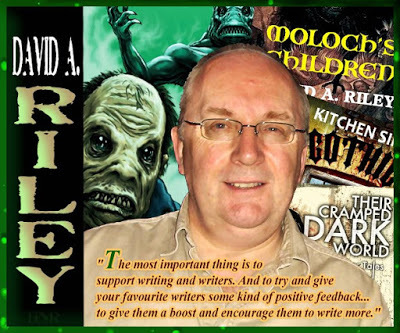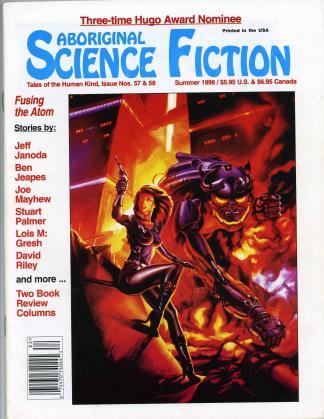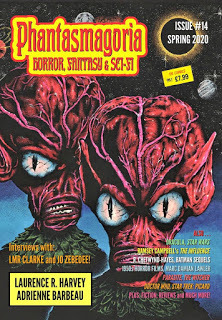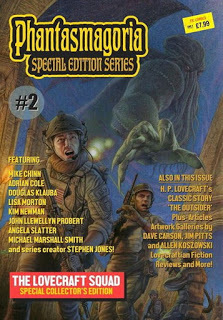David A. Riley's Blog, page 42
May 10, 2020
Fauda - season three
 Finally watched the last episode of the current season of Fauda. The tension in this series is the most intense I think I have ever come across in the TV program. Nail-biting doesn't come into it. I have no intension of giving away any of what happens in it, but it certainly didn't pan out as I expected and had one of the most stunning climaxes I have yet seen. Thoroughly recommended.
Finally watched the last episode of the current season of Fauda. The tension in this series is the most intense I think I have ever come across in the TV program. Nail-biting doesn't come into it. I have no intension of giving away any of what happens in it, but it certainly didn't pan out as I expected and had one of the most stunning climaxes I have yet seen. Thoroughly recommended.
Published on May 10, 2020 08:48
Red Lights - review
 Watched Red Lights, starring Sigourney Weaver and Robert De Niro on Friday night.
Watched Red Lights, starring Sigourney Weaver and Robert De Niro on Friday night.The film has a great cast, besides the ones mentioned above, but is such a waste of all the talent in it, perhaps because the writer/director hadn't a clue about the word subtlety. De Niro's performance was pretty bad too, I must admit, with too much OTT acting, though it would be hard to match Cillian Murphy who shouts too much at everyone, and there is one particular scene where his character attacks, humiliates and bullies his department boss, Toby Jones (who is quite a bit smaller than him) in front of witnesses - and without repercussions. It came over as a nasty piece of arrogant bullying, unjustified by anything that had happened. My credibility in the film, already fairly well stretched, passed breaking point after this. In no real world would something like that either be justified or tolerated, either by the man subjected to it or by any of the witnesses. Just one example of a stupid script that wasted what could have been an interesting concenpt.
Not recommended at all.
Published on May 10, 2020 08:36
May 9, 2020
Tribute
I was flattered by this image created byJames Toeken on facebook on my birthday, which he posted on my own facebook page and on the Horror Novels Review site:


Published on May 09, 2020 18:20
May 7, 2020
Lovecraftiana Volume 5, Issue 1 arrived today
I was pleased to receive my copy of Lovecraftiana volume 5, issue 1, Walpurgisnacht 2020, in the post today.
It contains a reprint of my Lovecraftian story Lurkers, which is a sort of sequel to The Lurkers in the Abyss.
Priced only £6.99, it is available from Amazon:
https://www.amazon.com/dp/B087L8RGWV
https://www.amazon.co.uk/dp/B087L8RGWV
Table of contents:
Lurkers by David A Riley
Every Star is Mad by CM Fields
The Reliquary by CP Webster
Unholy Cosmic Terror by Cameron Walker
Bug of the Stars by Evan Rodenhausen
Afterburn by Carlton Herzog
The Vessel by Henry Snider
How to Frame a Dying Art by Mike Lee
The Blue Canoe by Ben Scotti
The Terror of Emmett’s Cove by Lee Clark Zumpe
The Dewey Mine Attack by Dean Wirth
Shipping on the River by Sergio Palumbo
The End of History by Mathew Chabin


It contains a reprint of my Lovecraftian story Lurkers, which is a sort of sequel to The Lurkers in the Abyss.
Priced only £6.99, it is available from Amazon:
https://www.amazon.com/dp/B087L8RGWV
https://www.amazon.co.uk/dp/B087L8RGWV
Table of contents:
Lurkers by David A Riley
Every Star is Mad by CM Fields
The Reliquary by CP Webster
Unholy Cosmic Terror by Cameron Walker
Bug of the Stars by Evan Rodenhausen
Afterburn by Carlton Herzog
The Vessel by Henry Snider
How to Frame a Dying Art by Mike Lee
The Blue Canoe by Ben Scotti
The Terror of Emmett’s Cove by Lee Clark Zumpe
The Dewey Mine Attack by Dean Wirth
Shipping on the River by Sergio Palumbo
The End of History by Mathew Chabin


Published on May 07, 2020 08:42
April 30, 2020
Lovecraftiana Vol 5 Issue 1 containing Lurkers is now out
Lovecraftiana Vol 5 Issue 1 (the Walpurgis issue) is now available containing a reprint of my story Lurkers.
£6.99 in the UK from Amazon, $8.99 in the US.

£6.99 in the UK from Amazon, $8.99 in the US.

Published on April 30, 2020 11:25
April 27, 2020
Phantasmagoria
I now have a couple of poems scheduled to appear in the next two issues of Phantasmagoria.
One is When Silver Dusk Suffuses Red. The other, much darker poem is He Thought He Was Dying.
The next issue will also contain my story The Fragile Mask on his Face, which will be illustrated on the cover by Jim Pitts.
One is When Silver Dusk Suffuses Red. The other, much darker poem is He Thought He Was Dying.
The next issue will also contain my story The Fragile Mask on his Face, which will be illustrated on the cover by Jim Pitts.
Published on April 27, 2020 10:05
April 21, 2020
Lovecraftiana Magazine - Walpurgis 2020 edition
My story Lurkers will be reprinted in the forthcoming Walpurgis edition of Lovecraftiana magazine. See cover below:


Published on April 21, 2020 09:08
Help-Plants reprinted in The Martian Wave, March 2020 issue
Pleased to receive my contributor's copy of The Martian Wave, March 2020 issue in the post today, containing a reprint of my SF story Help-Plants, which was originally published in Aboriginal Science Fiction.
The Martian Wave


The Martian Wave


Published on April 21, 2020 04:54
April 5, 2020
Two Stories Published in Phantasmagoria Magazine - #14 and Special Edition Series #2
This month I have two stories published in Phantasmagoria:
Lurkers appears in Phantasmagoria Special Edition Series #2
Terror on the Moors appears in Phantasmagoria #14


Lurkers appears in Phantasmagoria Special Edition Series #2
Terror on the Moors appears in Phantasmagoria #14


Published on April 05, 2020 06:49
March 4, 2020
New Stories
By the end of February I had finished four stories that month. Besides
Three Eyed Jack
Incandescence
The God in the Keep
I also completed
The Tract of Calvanicus
In March so far I have just finished one long story (8,600 words):
Floating Free
I am confident that there will be more before the end of the month. This year has been really strange. I have never had a period as productive as this since I first started writing.
Three Eyed Jack
Incandescence
The God in the Keep
I also completed
The Tract of Calvanicus
In March so far I have just finished one long story (8,600 words):
Floating Free
I am confident that there will be more before the end of the month. This year has been really strange. I have never had a period as productive as this since I first started writing.
Published on March 04, 2020 10:11



